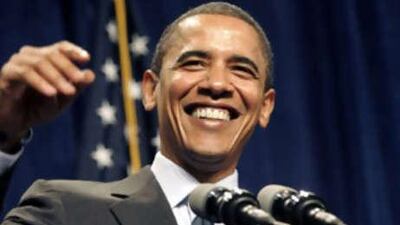WASHINGTON // While it is said in the United States that the only two guarantees in life are death and taxes, there is another, at least in the heat of election season: truth is expendable on the campaign trail. In a recent television advertisement, John McCain implied that his opponent, Barack Obama, had "snubbed" US troops in Germany and decided instead to work out at the gym (not so). The country's largest labour group placed a commercial charging Mr McCain with voting against increasing health benefits to veterans (he actually did the opposite).
A chain email quoted a column by Maureen Dowd of The New York Times that said Mr Obama had banked suspicious campaign contributions from Saudi Arabia, Iran and elsewhere in the Middle East (no such column exists). But truth, it turns out, is getting a boost. The proliferation of political fact-checking, by traditional news organisations as well as independent outlets, has meant the scrutiny of every word, advertisement, speech and claim, making it harder for candidates and their surrogates to twist an opponent's record and build up their own - or at least get away with it.
Brooks Jackson, the so-called father of the political fact-checking movement and director of factcheck.org, an independent site launched in 2003 by the University of Pennsylvania's Annenberg Public Policy Center, said fact-checking was not about impugning a candidate's character. Nor was it about revelling in having caught someone in a lie - a word Mr Jackson, a former CNN and Wall Street Journal reporter, is extraordinarily conservative about using, since it implies wilful deception. In many cases, he said, the candidates were simply "drinking their own Kool-Aid".
Fact-checking, rather, is about preserving the integrity of the first thing that sometimes gets lost in the whirlwind of the campaign: the cold, hard facts. "The voter wants to know: I've got conflicting versions of reality, which one's right?" said Mr Jackson, co-author of unSpun: Finding Facts in a World of Misinformation. "Politicians have been doing this since there have been democratic offices. I think the word 'demagogue' comes from Greece, 2,500 years ago. This behaviour is just endemic to a democratic system."
In the past few weeks, factcheck.org has unearthed distortions, untruths or what seems like plain old sloppiness in advertisements run by Mr McCain, the AFL-CIO (which supports Mr Obama) and a group called Vets for Freedom. A Spanish-language commercial by the McCain camp on the effect on Florida of a free-trade agreement with Colombia got nearly all of its facts wrong, the site found. It has also criticised Mr Obama for inflating his legislative achievements, among other things.
More and more outlets are institutionalising fact-checking, with ad watches and other features that test the letter, and the spirit, of candidates' claims. The Washington Post launched The Fact-Checker, which subjects what candidates say to the Pinocchio Test, named for the fictitious wooden puppet whose nose grew longer when he told a lie (the more Pinocchios awarded, the less true the claim is).
The St Petersburg Times, a daily newspaper in Florida, joined Congressional Quarterly last autumn in launching PolitiFact.com. That site's signature is the Truth-O-Meter. "We have six rulings: True, Mostly True, Half True, Barely True, False and then Pants on Fire," Amy Hollyfield, an editor there, said recently, one day after she and her colleagues ruled that Mr McCain's claim in one ad that Mr Obama would "raise taxes on electricity" was "Barely True".
Both The Times and Congressional Quarterly are owned by the Poynter Institute, a journalism education think tank. While good journalism presents both sides of an argument - on one hand, on the other hand - the team at PolitiFact felt that such a traditionally "objective" approach did not serve readers well enough when it came to politicians' claims. Ms Hollyfield said it was considered "essential to the reader that we actually make a call" on truthfulness. "We don't care about 'on the one hand'," she said. "We care about the truth."
It was this very sort of fact-checking that led to the unravelling of one of the wildest tales told this year: Hillary Clinton's claim that she landed under sniper fire in Bosnia in 1996 during a trip as first lady, and had to duck down to run across the tarmac to safety. A gripping story, yes, but untrue. Bob Papper, chairman of journalism, media studies and public relations at Hofstra University in New York, said campaigns "go negative" - a tactic that almost inevitably involves distortions of the truth - mostly because such a strategy works. Even if a candidate wants to run a clean campaign, "you've got this massive campaign machinery composed mostly of experienced professionals who have been doing this campaign after campaign. And they're going to do what works based on what they've done before."
Although Mr Papper said there was a line candidates could cross in being too negative, he noted that even distortions "corrected" later have usually already done their damage, such as the Swift Boat Veterans campaign against John Kerry in 2004, in which Mr Kerry was accused of lying to get his Vietnam service medals. Still, Mr Papper said, more and more outlets were scrutinising what candidates say and holding their words up to reality.
"I would like to think it is making the candidates think a little bit more about what they're saying," he said. Ms Hollyfield of PolitiFact.com thought that would be the case, too. But not so far. "We've been pretty busy," she said. @Email:eniedowski@thenational.ae

